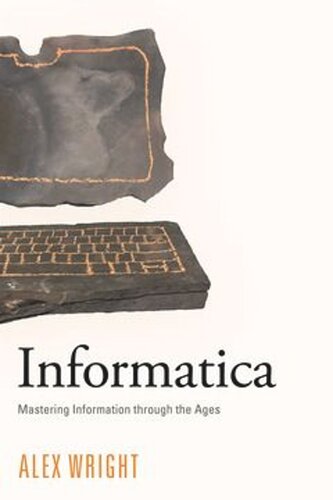

Most ebook files are in PDF format, so you can easily read them using various software such as Foxit Reader or directly on the Google Chrome browser.
Some ebook files are released by publishers in other formats such as .awz, .mobi, .epub, .fb2, etc. You may need to install specific software to read these formats on mobile/PC, such as Calibre.
Please read the tutorial at this link: https://ebookbell.com/faq
We offer FREE conversion to the popular formats you request; however, this may take some time. Therefore, right after payment, please email us, and we will try to provide the service as quickly as possible.
For some exceptional file formats or broken links (if any), please refrain from opening any disputes. Instead, email us first, and we will try to assist within a maximum of 6 hours.
EbookBell Team

4.0
86 reviewsInformatica―the updated edition of Alex Wright's previously published Glut―continues the journey through the history of the information age to show how information systems emerge. Today's "information explosion" may seem like a modern phenomenon, but we are not the first generation―or even the first species―to wrestle with the problem of information overload. Long before the advent of computers, human beings were collecting, storing, and organizing information: from Ice Age taxonomies to Sumerian archives, Greek libraries to Christian monasteries.
Wright weaves a narrative that connects such seemingly far-flung topics as insect colonies, Stone Age jewelry, medieval monasteries, Renaissance encyclopedias, early computer networks, and the World Wide Web. He suggests that the future of the information age may lie deep in our cultural past.
We stand at a precipice struggling to cope with a tsunami of data. Wright provides some much-needed historical perspective. We can understand the predicament of information overload not just as the result of technological change but as the latest chapter in an ancient story that we are only beginning to understand.